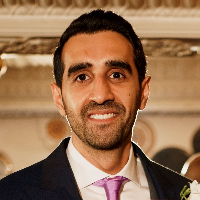Start Calculator
Calculate Your CETVOur process starts with you, your circumstances and what your current safeguarded pension scheme provides.
In our triage stage, we ask you to consider the benefits and disadvantages of the different pension schemes available. This is an educational process to help you decide whether to proceed with advice.
This is free of charge.
Should you wish to proceed, we will conduct the initial assessment covering the following:
- Financial objectives and personal circumstances
- Attitude to the risks of giving up safeguarded benefits, investment risk and capacity to bear any losses
- Benefits provided by your existing DB scheme
This process is known as ‘abridged advice’ and is used to determine if you would benefit from full advice. We want to ensure you only pay for our complete services when receiving advice would be in your best interest.
We will either provide you with a recommendation to remain in your existing scheme or confirm the need to provide you with full advice. (where the initial assessment does not produce an explicit outcome).
Abridged Service Fee – £495 (+VAT) [only paid if you don’t proceed to full advice]
Where the outcome is unclear following abridged advice it will be your choice to take full advice.
We will not proceed to full advice until you instruct us. Our full advice charges are explained below:
Our charges are calculated as a fixed charge of £3,500 plus 1% of the cash equivalent transfer value (CETV).
For example, if the CETV was £100,000 our charge would be £4,500, whereas if the CETV was £750,000 our charge would be £11,000.
Our charges become payable on the provision of our recommendation, or earlier termination of our services by you, and our charges for full advice will be the same whether we recommend you remain in your existing scheme or transfer. Should a transfer proceed, we will NOT charge you for the time we take in implementing our recommendation.
N.B. An express service surcharge of £875 will apply where you initiate our services within 6 weeks of any guaranteed CETV deadline.
The cost of this service is based on the value of your transferred pension fund and is charged at a rate of 0.83% per annum for our service. This will be collected directly from your pension fund.
If you transfer your existing DB pension scheme you will be giving up valuable safeguarded benefits in favour of a fund which will be subject to investment risk.
You may therefore consider it important to review the fund to ensure the pension continues to meet your objectives and at regular intervals. Our ongoing service proposition can support you in these matters.
Sanjay Gambhir
Financial Advisor
“We focus on getting to know you and your family’s circumstances, and our advice often changes lives. We help empower our clients to achieve their desired retirement and life goals”.

- You will receive a secured income for life, likely to rise yearly in line with inflation. Your spouse/civil partner can receive an income (subject to income tax) upon your death.
- There is minimal paperwork to start the payment of benefits, and no ongoing monitoring of the scheme is required after you make the first payment.
- Defined benefit schemes will place no personal investment risk on you.
- Defined benefit schemes have a legal duty to provide a pension for a surviving widow/widower or dependent in the event of your death.
- A defined benefit scheme is rigid in its structure. You receive a set amount of money each month until you die; therefore, it cannot adapt if your needs change throughout retirement.
- You must select your pension scheme payments before taking any benefits; you cannot change them later.
- Many defined benefit schemes have a pre-selected retirement age, and taking early benefits can result in reduced pension benefits.
- Any income from a defined benefit scheme will be subject to income tax at your highest marginal rate.
- Any income from a defined benefit scheme may affect your entitlement to means-tested state benefits.
- Only your spouse/civil partner and children under 23 (unless legally defined as a dependent if older) will usually be entitled to a reduced pension on your death. You will not be able to leave your pension benefits on death to any other party.
- Any options (if offered by your scheme) to provide benefits on death must be selected at the outset and will result in a lower initial pension payment.
- The tax-free pension commencement lump sum (usually referred to as Tax-Free Cash) of an individual pension or drawdown plan can be greater than from a defined benefit scheme.
- You can choose how and when you take your benefits — offering you greater flexibility and choice.
- When taking benefits, there are no restrictions on the amount of money you can withdraw at any time.
- On your death, your nominated beneficiaries will receive the remainder of your pension fund. There is no restriction on whom you choose to receive these benefits.
